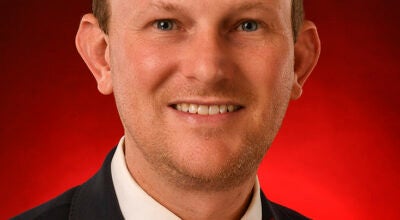The road not taken
Published 11:00 pm Friday, January 17, 2014
Most everyone familiar with American poetry knows Robert Frost’s poem “The Road Not Taken.” In Mrs. Vaughn’s eighth grade class at Charles Henderson Middle School, I actually had to memorize and recite the poem in front of the class.
The poem itself is actually very straightforward. The narrator finds himself at the fork in the road. He looks down both paths and ultimately decides to take the path that has been less traveled. The narrator of the poem has long been championed as an independent individual who strikes out his own path. At the close of the poem, Frost writes, “Two paths diverged in a yellow wood, and I– / I took the one less traveled by, / And that has made all the difference” (18-20). The narrator makes the claim that taking the road less traveled by has been one of, if not the most, influential decisions of his life.
I believe this is a misreading of the poem. If we read the poem closely, we see that the narrator really only has the illusion of choice. In the poem, the narrator describes the two paths as being more or less equal. Frost writes, “Though as for that the passing there / Had worn them really about the same,” and “And both that morning equally lay / In leaves no step had trodden black” (9-10, 11-12).
I believe these two paths are representative of the America that we live in today. One path may look a little less traveled and a little more appealing, but, all things considered, it is about the same as the other path.
The problem that we face in America is that we have adopted a completely binary thought process. As Americans we think of things in terms of good and bad or right and wrong or black and white. I’m not sure whether it is the political climate that has caused this or whether it is just the national Zeitgeist. Regardless, I believe this sort of thinking has stifled American creativity and has caused a general malaise and apathy throughout the country.
What I think we need to do better as a country is examine the gray areas. Yes, Republicans and Democrats each have their own ideas about how to run this country, but I think we allow ourselves to be pigeonholed in to viewing the world through only one lens.
When I was younger, I allowed myself, like the narrator of Frost’s poem, to believe that there were only two possible paths through life. I was so set in my own view of the world that I failed to consider any other possible perspectives. As I grew older, I slowly began to realize that this is a foolish way to live life. I began reading more and learning to examine the gray areas in life.
What I found in my exploration is that living in the gray areas is an enriching experience. It’s also a freeing experience. Viewing the world in only one way is ultimately exhausting. It leaves no room for development and growth.
We millennials face a unique challenge as we come of age. We must figure out how to evolve past binary thinking while still existing in a world that values binary thinking. For those who have seen The Social Network, you might recall the scene in which the president of Harvard tells the Winklevoss twins that it is better to invent a job than find a job.
This is actually apt advice for 2014. Instead of resigning yourself to living one of two ways, why not try a third option you had never considered? Try reading an author you have never heard about before. Attend a religious service outside of your traditional Sunday church. Take a spontaneous road trip. Start working on learning a foreign language, writing a book or even getting in to shape. Do something that is outside of your normal routine.
So, what advice do I have for the narrator in Frost’s poem? As strange as it might sound, maybe rapper Jay-Z has the best answer for what the narrator should do. As he says in his song “Renegade,” “I came to the fork in the road and went straight.”
Jeb Sharp is a staff writer for The Messenger. You can contact him with comments by e-mail at jeb.sharp@troymessenger.com.


